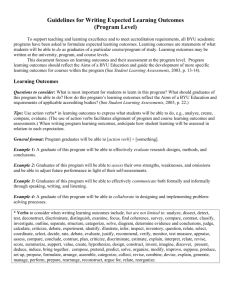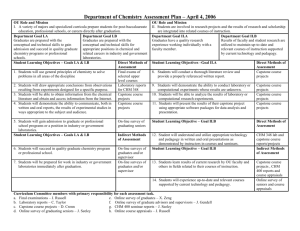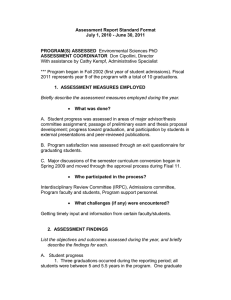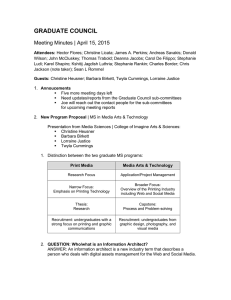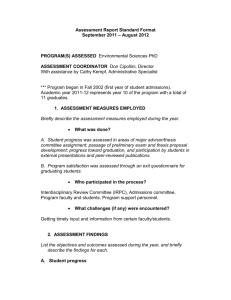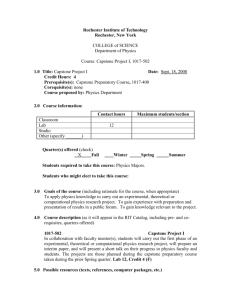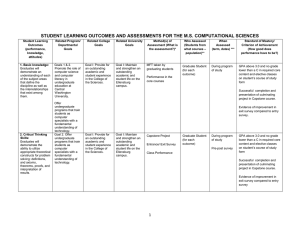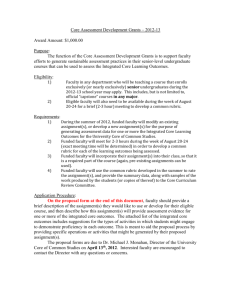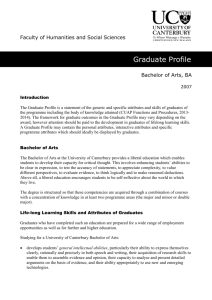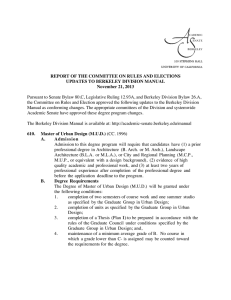Political Science Assessment Plan
advertisement
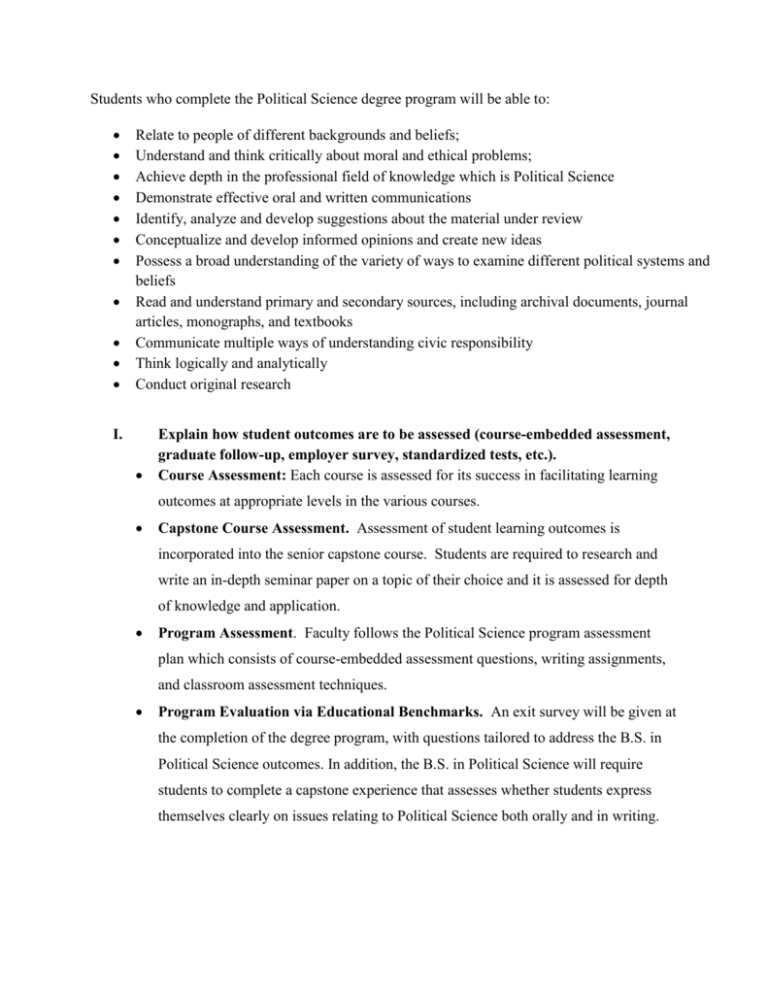
Students who complete the Political Science degree program will be able to: Relate to people of different backgrounds and beliefs; Understand and think critically about moral and ethical problems; Achieve depth in the professional field of knowledge which is Political Science Demonstrate effective oral and written communications Identify, analyze and develop suggestions about the material under review Conceptualize and develop informed opinions and create new ideas Possess a broad understanding of the variety of ways to examine different political systems and beliefs Read and understand primary and secondary sources, including archival documents, journal articles, monographs, and textbooks Communicate multiple ways of understanding civic responsibility Think logically and analytically Conduct original research I. Explain how student outcomes are to be assessed (course-embedded assessment, graduate follow-up, employer survey, standardized tests, etc.). Course Assessment: Each course is assessed for its success in facilitating learning outcomes at appropriate levels in the various courses. Capstone Course Assessment. Assessment of student learning outcomes is incorporated into the senior capstone course. Students are required to research and write an in-depth seminar paper on a topic of their choice and it is assessed for depth of knowledge and application. Program Assessment. Faculty follows the Political Science program assessment plan which consists of course-embedded assessment questions, writing assignments, and classroom assessment techniques. Program Evaluation via Educational Benchmarks. An exit survey will be given at the completion of the degree program, with questions tailored to address the B.S. in Political Science outcomes. In addition, the B.S. in Political Science will require students to complete a capstone experience that assesses whether students express themselves clearly on issues relating to Political Science both orally and in writing. Graduate job placement rates. Graduates are encouraged to remain in contact with the School and to provide employment data. Humanities and Social Sciences faculty maintain electronic communication with graduates. Alumni surveys. Beginning one year after their graduation, students of the program shall be requested to provide feedback about the outcomes of their learning and how it prepared them for their career or graduate school.


